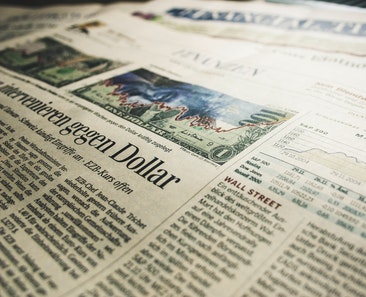The Latest: Trump gathers his Cabinet to celebrate his wins
President Donald Trump ’s latest executive order delaying official tariff increases on dozens of countries until Aug. 1 has relieved some pressure on world markets, but he also ordered a 25% tax on goods imported from Japan and South Korea, citing persistent trade imbalances with the two crucial U.S. allies in Asia.
Trump will hold his first Cabinet meeting since April on Tuesday morning. And Trump plans a Friday visit to Texas, where flash floods killed more than 100 people, raising questions about whether more people will suffer due to his cuts to the National Weather Service and Federal Emergency Management Agency.
The Latest:
‘Shameful:’ Judge allows Trump to yank millions in grants supporting crime victims
A federal judge has allowed the Trump administration to rescind nearly $800 million in grants for programs supporting violence reduction and crime victims.
U.S. District Judge Amit Mehta in Washington denied a preliminary injunction sought by five organizations on behalf of all recipients of the more than 360 grant awards, and granted a motion by the federal government to dismiss the case on Monday.
Mehta called the Department of Justice’s actions “shameful,” but said the court lacked jurisdiction and the organizations had failed to state a constitutional violation or protection.
The Justice Department’s Office of Justice Programs cancelled the grants in April, saying it had changed its priorities to, among other things, more directly support certain law enforcement operations, combat violent crime and support American victims of trafficking and sexual assault.
Air travelers may no longer be required to remove shoes
The Transportation Security Administration has not officially confirmed media reports that for the first time in almost 20 years, travelers may no longer be required to take off their shoes during security screenings at certain U.S. airports.
Homeland Security Secretary Kristi Noem will host a 5 p.m. ET press conference at Ronald Reagan Washington National Airport to announce a new TSA policy “that will make screening easier for passengers, improve traveler satisfaction, and reduce wait times,” her agency said.
If implemented, it would put an end to a security screening mandate put in place almost 20 years ago, several years after “shoe bomber” Richard Reid’s failed attempt to take down a flight from Paris to Miami in late 2001.
 Read more about the TSA’s policy announcement
Read more about the TSA’s policy announcement
Gov. Gavin Newsom touring Trump strongholds in South Carolina
The California Democrat aims to meet voters in coffee shops, small businesses and churches across rural areas in the early-voting state on Tuesday and Wednesday, the latest signal that he’s eyeing a 2028 run for president.
The investment of time in a state pivotal to picking his party’s presidential nominees, and Newsom’s trajectory across some of its reddest areas, suggest that the term-limited governor is angling to shed his San Francisco liberal image, get ahead of what’s sure to be a crowded 2028 field and make inroads with the diverse Democratic electorate seen as critical for their party’s nominee.
His stops include the small town of Seneca, which four-term GOP Sen. Lindsey Graham calls home. Trump won more than 75% of votes cast in the surrounding Oconee County last year.
Here’s how Trump’s latest tariff hikes could affect US consumers
Trump is meeting with his Cabinet
It will be the president’s first meeting with those running the Cabinet departments and other agencies since April 30.
Trump uses these meetings to talk about his “wins” while Cabinet secretaries use them to praise his leadership.
The April meeting — broadcast live on television — lasted about two hours. A lot has happened since then, including U.S. military airstrikes against Iran’s nuclear facilities and the enactment of Trump’s tax and spending cuts bill.
Today’s meeting is scheduled for 11 a.m. ET. It follows Trump’s dinner meeting Monday evening at the White House with Israeli Prime Minister Benjamin Netanyahu.
Markets appear to shrug off new tariff deadlines for US trading partners.
Wall Street was mixed in quiet trading early Tuesday. Futures for the S&P 500 added 0.1% before the bell, while futures for the Dow Jones Industrial Average shed 0.1%. Nasdaq futures rose 0.2%.
Markets tumbled Monday after President Donald Trump set a 25% tax on goods imported from Japan and South Korea and new tariff rates on a dozen other nations scheduled to go into effect on Aug. 1.
The S&P slid 0.8% on Monday to its biggest one-day decline since June, but remains near record levels. The Dow and Nasdaq fared about the same, but the wild, tariff-induced swings of the spring seem to have tempered.
 Read more on today’s financial markets action
Read more on today’s financial markets action
Japan’s prime minister vows to reach a mutually beneficial deal with Trump
Shigeru Ishiba said Tuesday during a meeting of his entire Cabinet in Tokyo that Trump’s announcement of 25% tariffs on all goods from Japan “is extremely regrettable,” and expressed his determination to continue negotiating patiently for a mutually beneficial agreement while protecting Japan’s national interests.
Ishiba noted that Trump’s latest tariff rate is lower than what he had threatened earlier, opening the way for more negotiations ahead of Trump’s latest deadline of Aug. 1.
He instructed his ministers to do their utmost to seek a mutually beneficial agreement while doing everything they can to mitigate the impact on Japanese industries and employment.
White House won’t say if Texas flooding will delay Trump’s plans to scrap FEMA
The White House won’t say if Trump, who plans to visit flood-ravaged Texas on Friday, will be rethinking phasing out the Federal Emergency Management Agency.
Asked if Trump may delay his promise to close FEMA and leave disaster response up to the states, Leavitt said, “The president has always said he wants states to do as much as they can,” and added that Texas officials are doing a “tremendous job.”
Pressed in a subsequent question about phasing out FEMA, Leavitt said she’d already answered the question — even though she hadn’t.
She also bristled at suggestions that Trump’s deep cuts to federal services may have affected the government response. She blamed Democrats, said faulting “President Trump for these floods is a depraved lie” and insisted that the National Weather Service “did its job” by spreading warnings about possible catastrophic flooding.
Pressure from Trump for trade deals before Wednesday deadline
The Trump administration is stepping up pressure on trading partners to quickly make new deals before a Wednesday deadline, with plans for the United States to start sending letters Monday warning countries that higher tariffs could kick in Aug. 1.
That furthers the uncertainty for businesses, consumers and America’s trading partners, and questions remain about which countries will be notified, whether anything will change in the days ahead and whether President Donald Trump will once more push off imposing the rates. Trump and his top trade advisers say he could extend the time for dealmaking but they insist the administration is applying maximum pressure on other nations.
Kevin Hassett, director of the White House National Economic Council, told CBS’ “Face the Nation” on Sunday that Trump would decide when it was time to give up on negotiations.
Source



